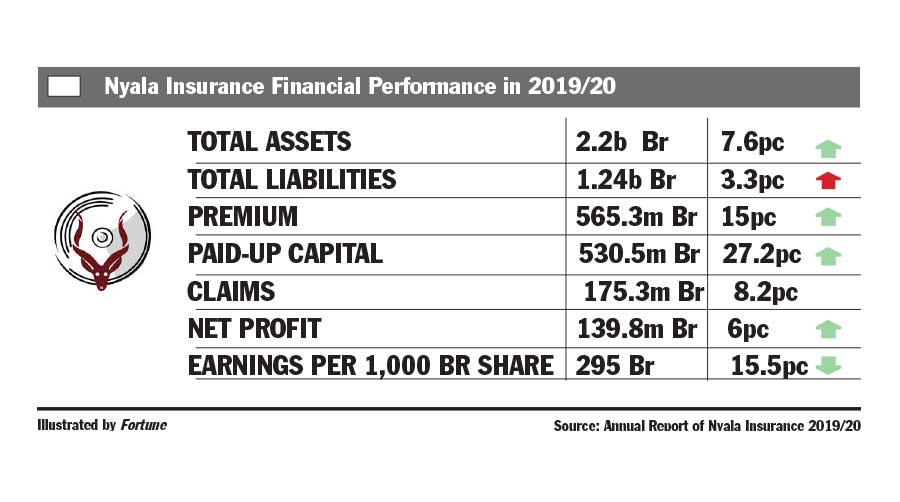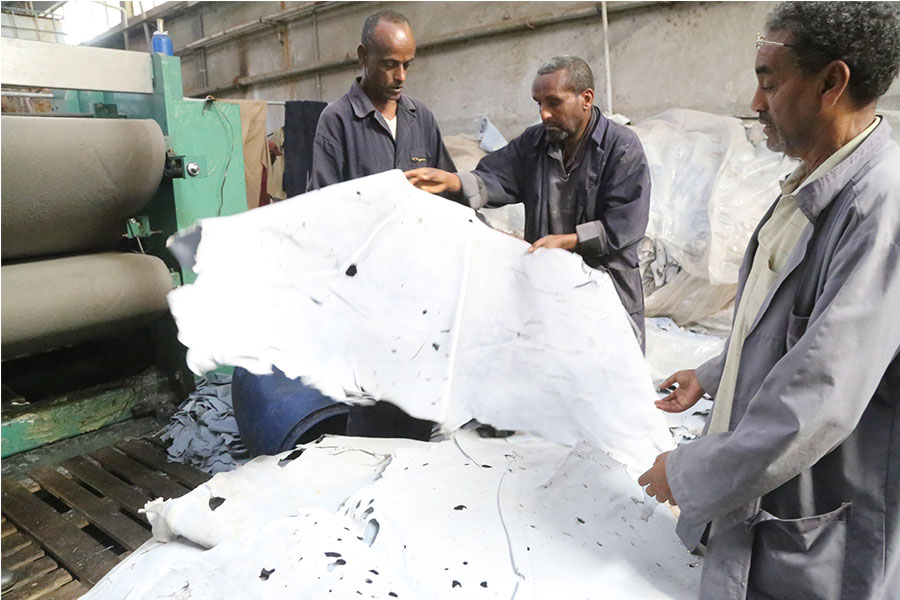
Featured | Oct 25,2020
Long lines and frustration are mounting at gas stations across the country are faced with a fuel shortage triggered by a confluence of factors. The scarcity is disrupting transportation, impacting businesses, and raising worries about economic health.
Reduced supplies are a major culprit. Inefficiencies at Djibouti's ports, the primary fuel import point, have slashed daily fuel deliveries by millions of litres, according to Derese Kotu, head of petroleum dissemination & regulation at the Petroleum & Energy Authority. Out of the demanded 2.5 million litres of benzene and 8.5 million litres of diesel, half a million litres and 1.5 million litres were reduced respectively.
With 300 trucks availed, Derese expects the next four months to be critical as demand will be higher for fertiliser distributions. Addis Abeba faces another predicament with 11pc of its supply dwindling, as it coincided with an ongoing corridor development construction that wiped out seven of its key fuel stations.
"This has exacerbated the shortage," said Derese.
Ethiopian Petroleum Enterprise has struggled to keep the petroleum efficiency at bay with constant disruptions at the terminal of Djibouti. Esemelealem Mihretu, CEO of Ethiopian Petroleum Enterprise (EPSE), said a slight disruption in logistics would impose an extreme disruption to a vulnerable market. For him, the past Eid holiday had stalled progress that barely recovered from a recent flood in the ports.
"It was one after the other too quickly", he said.
Adding fuel to the fire is a recent controversy surrounding a new quota system for fuel distribution. The system which was previously allocated based on market share now takes storage capacity and number of stations into account. It aimed at fairer allocation among 49 fuel companies, following a discussion with Authorities six months ago.
However, it was met with resistance from industry leader National Oil Ethiopia (NOC) which boasts the largest market share with 27pc. Its contenders OLA Energy and TotalEnergies follow with 15pc and 12pc shares respectively.
Derese alleges possible hoarding by dealers dismayed with the arrangement.
"Control mechanisms have to be in place," he said.
An official from NOC who spoke to Fortune on the conditions of anonymity said while they have been strongly against the new system, allegations of hoarding were baseless.
"It’s a groundless accusation," he told Fortune.
The executive said lower supplies have impacted its 250 stations across the country with insufficient supplies.
A Board Member at Ethiopian Petroleum Association Ephrem Tesfaye concurs. His station around the Asko area in the capital has been receiving 500,000ltr less than its 1.5 million litres demand.
“It’s going somewhere with less demand,” he said.
The problem persists 167Km away from the capital. Abdela Seid is a manager of a TotalEnergies outlet around the Assela area in the Oromia Regional State, with a monthly demand of 600,000ltr.
"It's been a week since we received a drop," he said.
The government is implementing measures to address the shortage. Alongside short-term measures to shield consumers from the impacts of the crisis benzene is being accessed from the depot found near the Sululta area, Sheger City, to appease the shortage transporting over 1.1 million litres of Addis Abeba daily.
However, experts suggest a long-term solution requires a more comprehensive approach, including diversifying import routes and strengthening the domestic fuel sector.
For Serkalem Gebrekiristos (PhD), a regional representative for Habitable Energy Solutions Africa Ltd, the reliance on Djibouti ports as the primary entry point for fuel imports has served to amplify the shortage. He argues a vicious cycle where depleted shares from those struggling with limited resources are redirected to others.
“Some companies should consider consolidation to strengthen their financial position to weather future crises,” he told Fortune.
Serkalem recommends a fundamental reevaluation of the regulatory framework governing the sector.
Consumers are bearing the brunt of the crisis. Taxi drivers like Daniel Zenebe spend hours searching for gas, sometimes waiting in line at multiple stations before finding fuel.
"Some of them don't even have any," he said.
PUBLISHED ON
Apr 20,2024 [ VOL
25 , NO
1251]

Featured | Oct 25,2020

Fortune News | Feb 27,2021

Radar | May 27,2023

Agenda | Jan 26,2019

Fortune News | Oct 16,2021

Viewpoints | Mar 18,2023

Viewpoints | Apr 25,2020

Featured | May 28,2022

Radar | Jul 13,2024

Fortune News | Jun 29,2024

Dec 22 , 2024 . By TIZITA SHEWAFERAW
Charged with transforming colossal state-owned enterprises into modern and competitiv...

Aug 18 , 2024 . By AKSAH ITALO
Although predictable Yonas Zerihun's job in the ride-hailing service is not immune to...

Jul 28 , 2024 . By TIZITA SHEWAFERAW
Unhabitual, perhaps too many, Samuel Gebreyohannes, 38, used to occasionally enjoy a couple of beers at breakfast. However, he recently swit...

Jul 13 , 2024 . By AKSAH ITALO
Investors who rely on tractors, trucks, and field vehicles for commuting, transporting commodities, and f...

Oct 25 , 2025
The regulatory machinery is on overdrive. In only two years, no fewer than 35 new pro...

Oct 18 , 2025
The political establishment, notably the ruling party and its top brass, has become p...

Oct 11 , 2025
Ladislas Farago, a roving Associated Press (AP) correspondent, arrived in Ethiopia in...

Oct 4 , 2025
Eyob Tekalegn (PhD) had been in the Governor's chair for only weeks when, on Septembe...